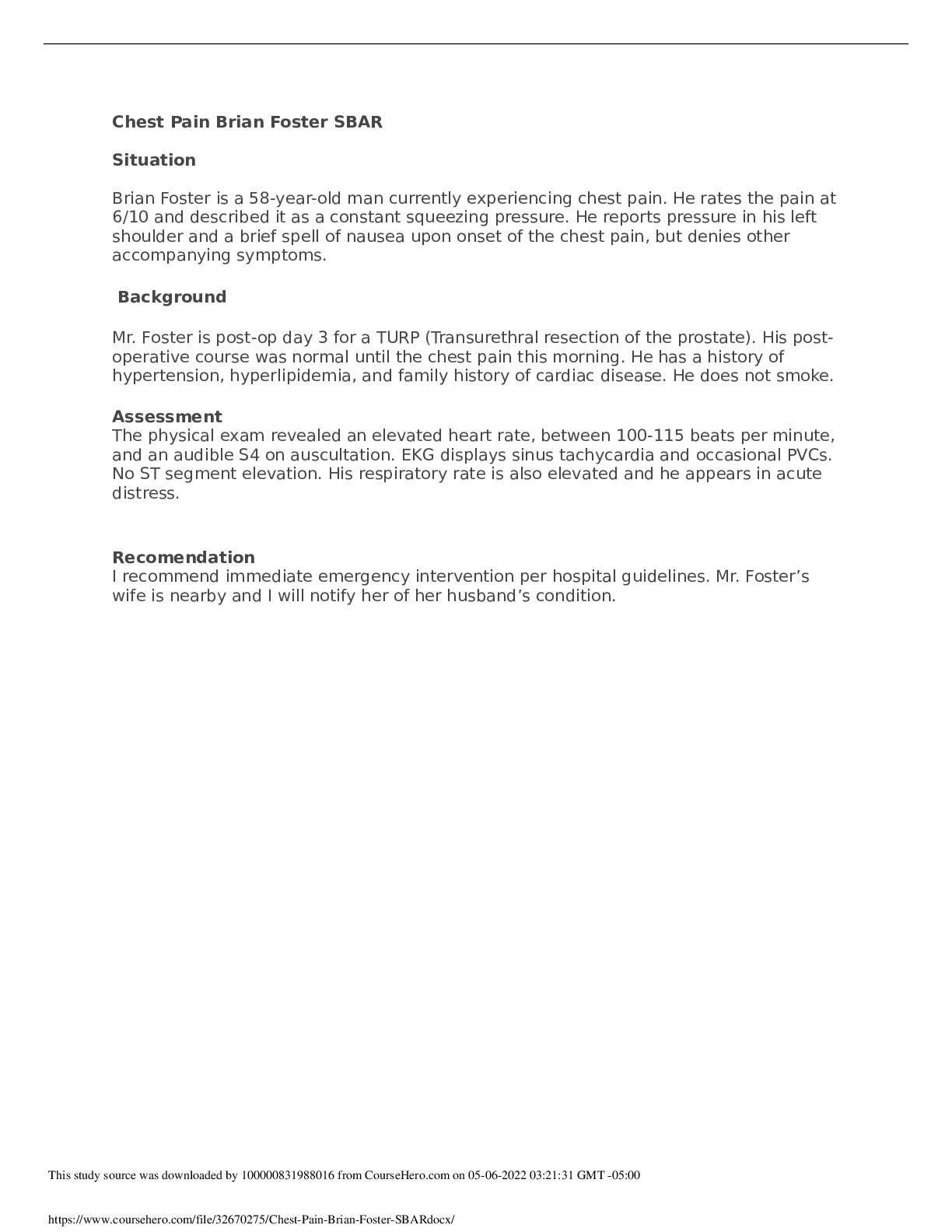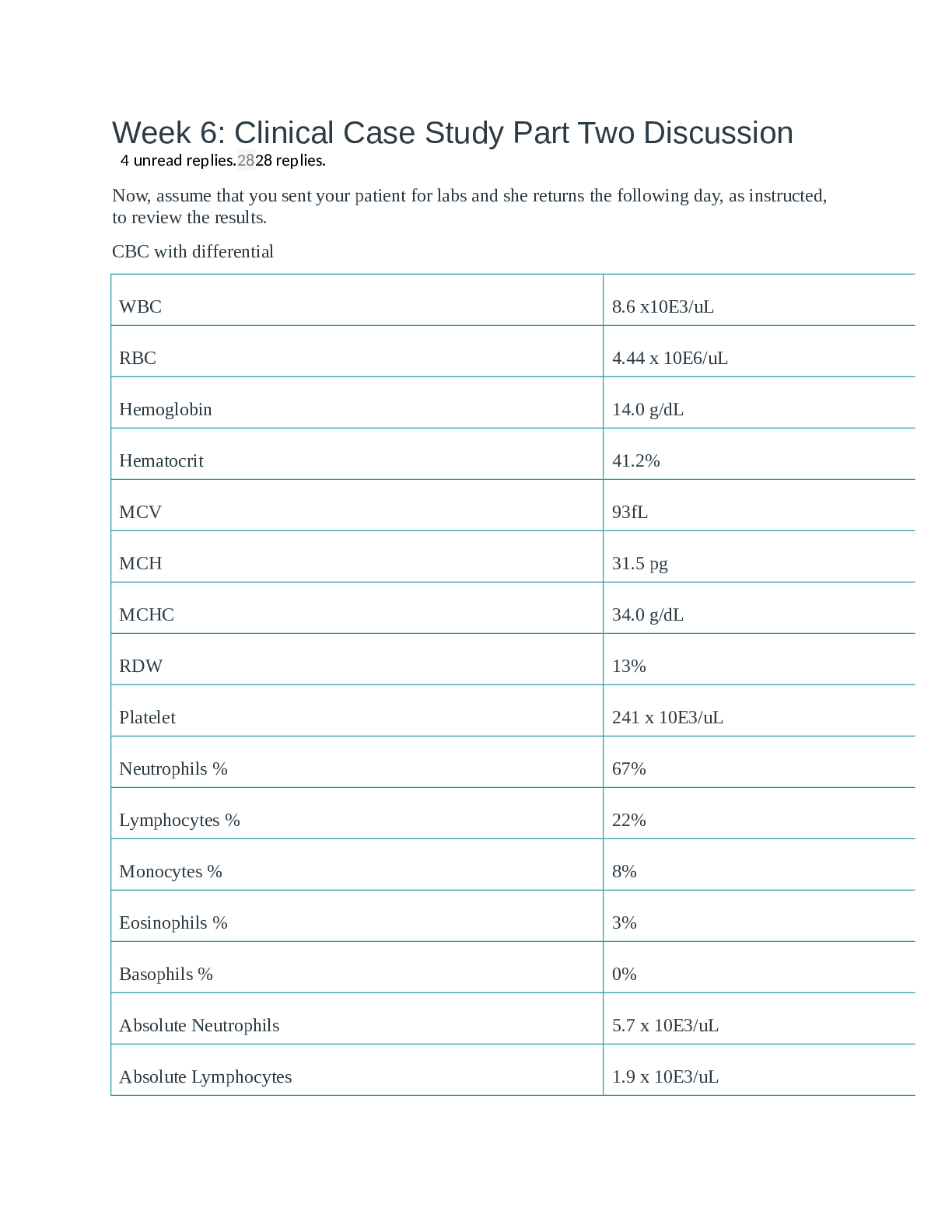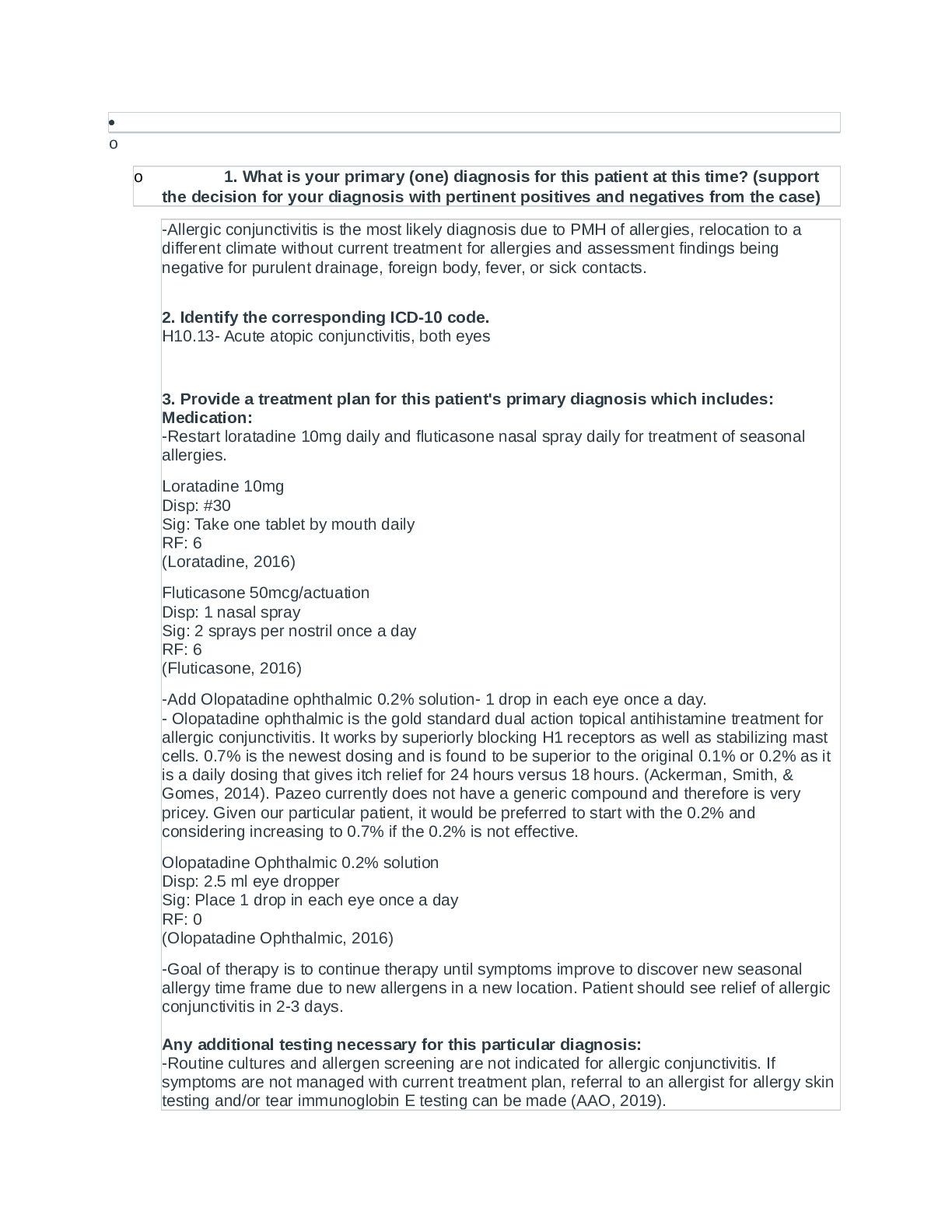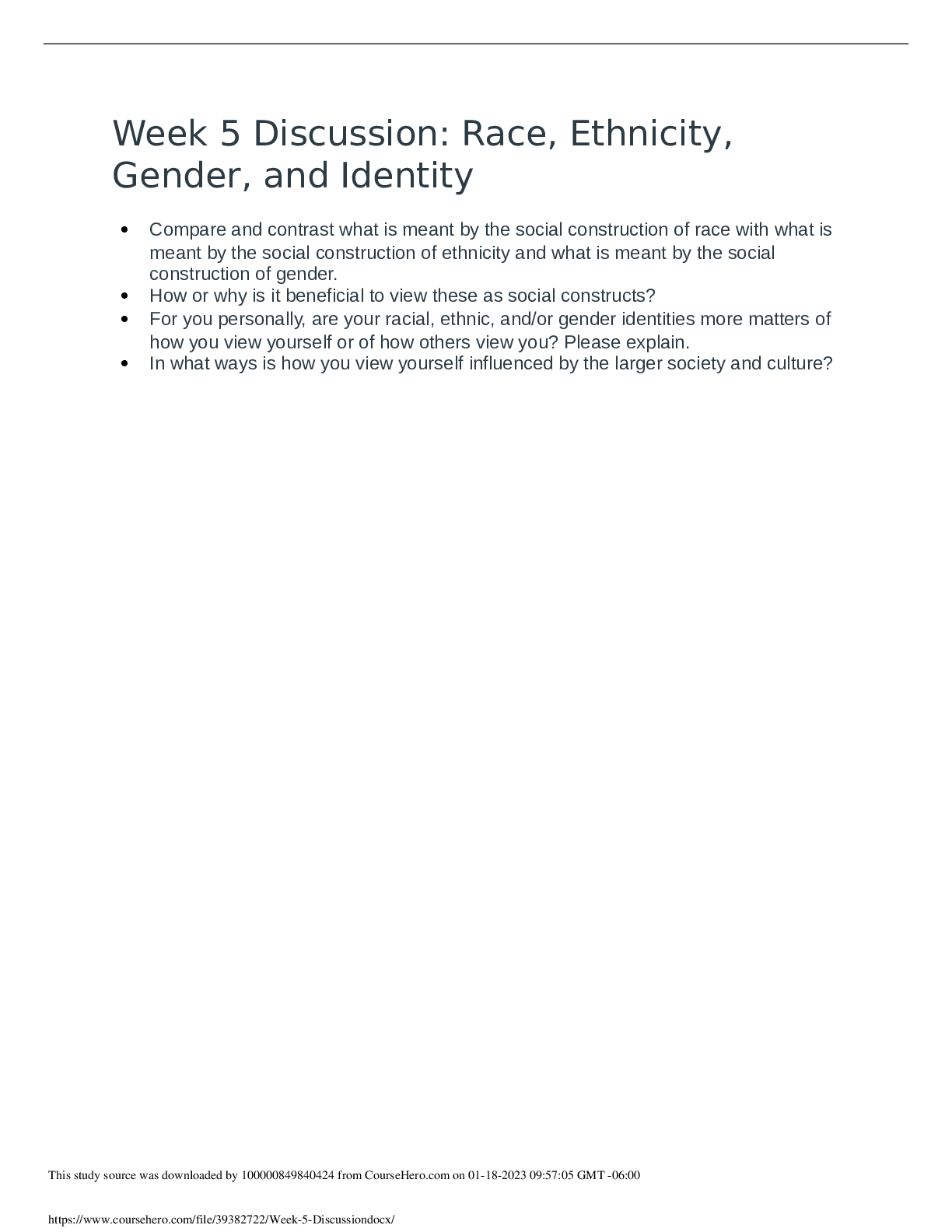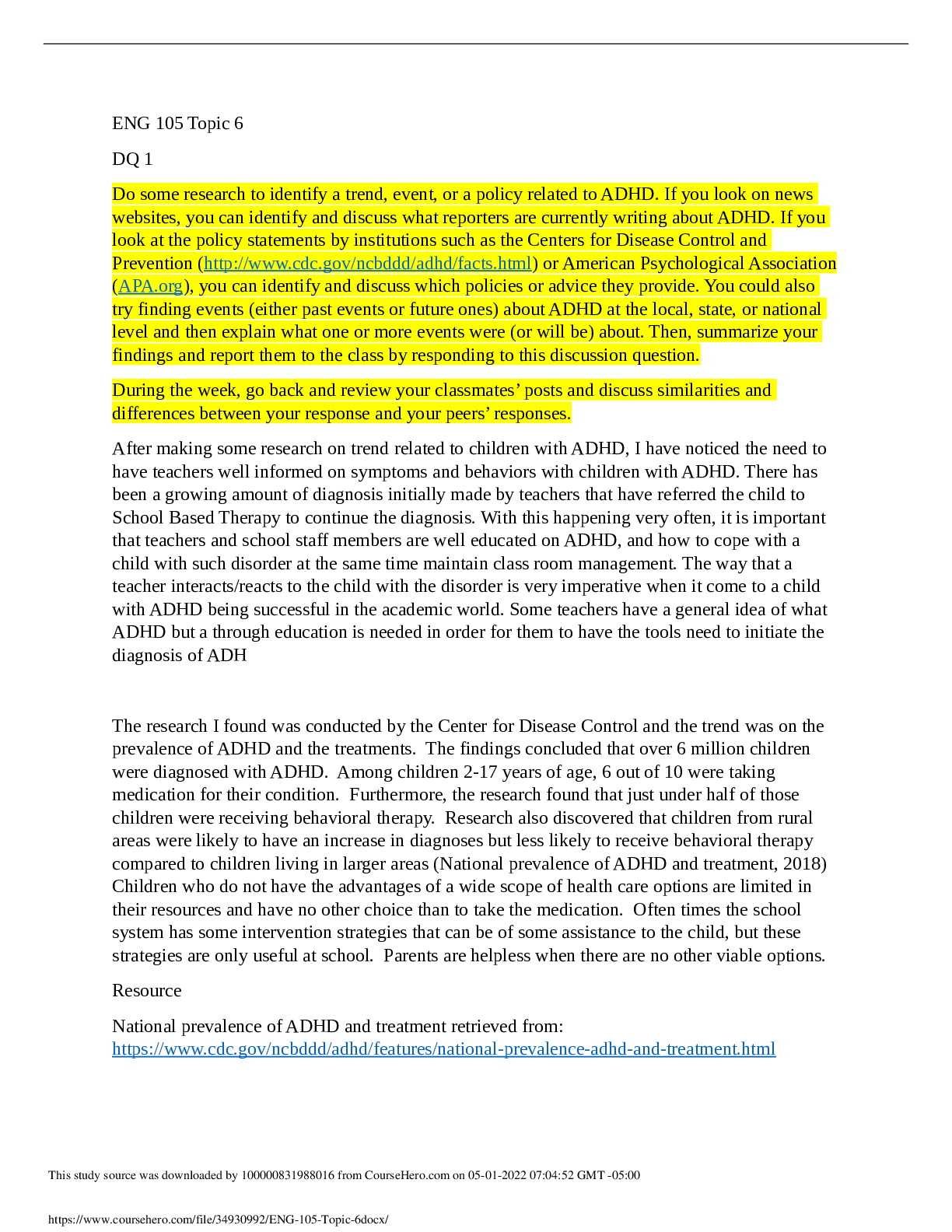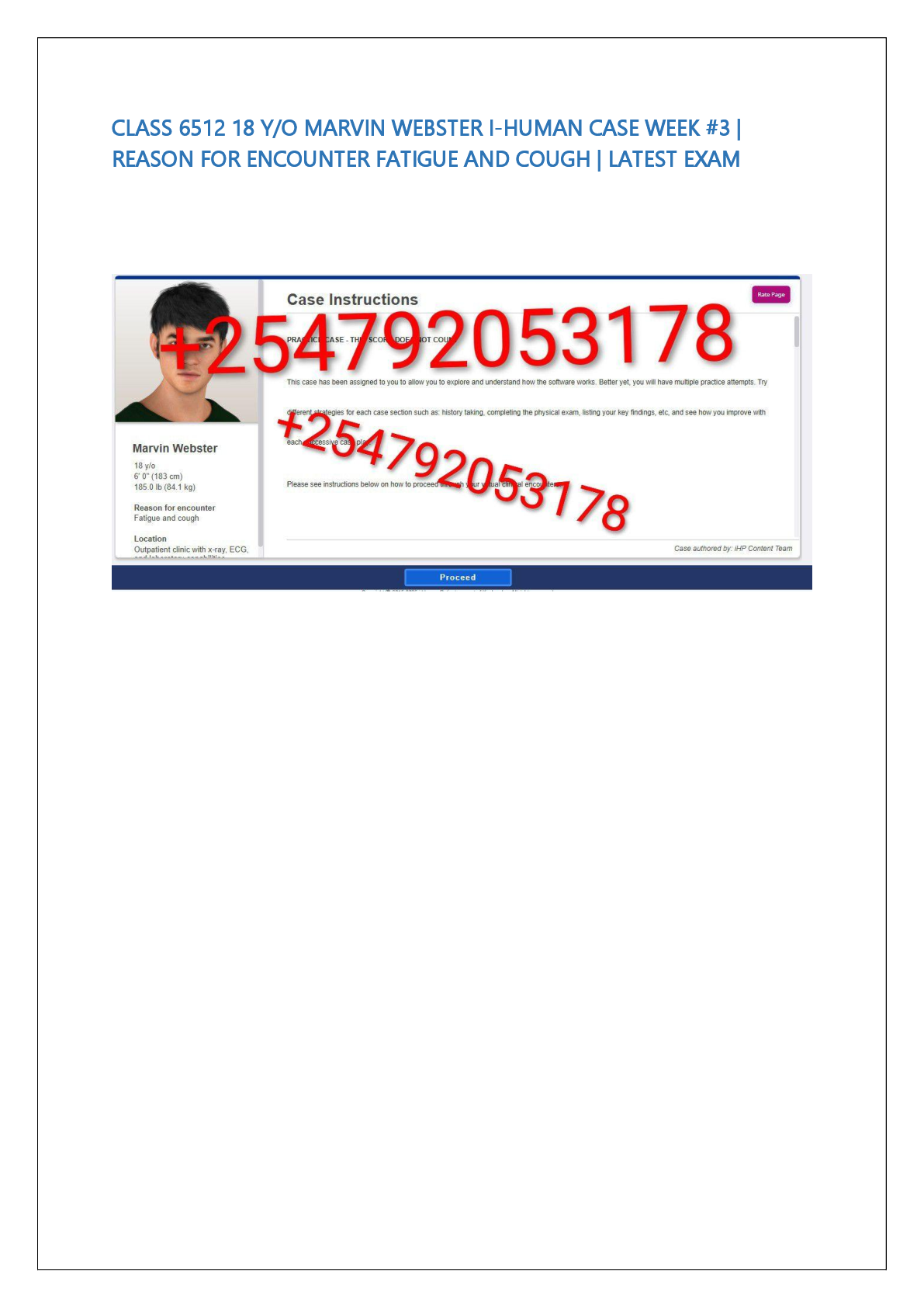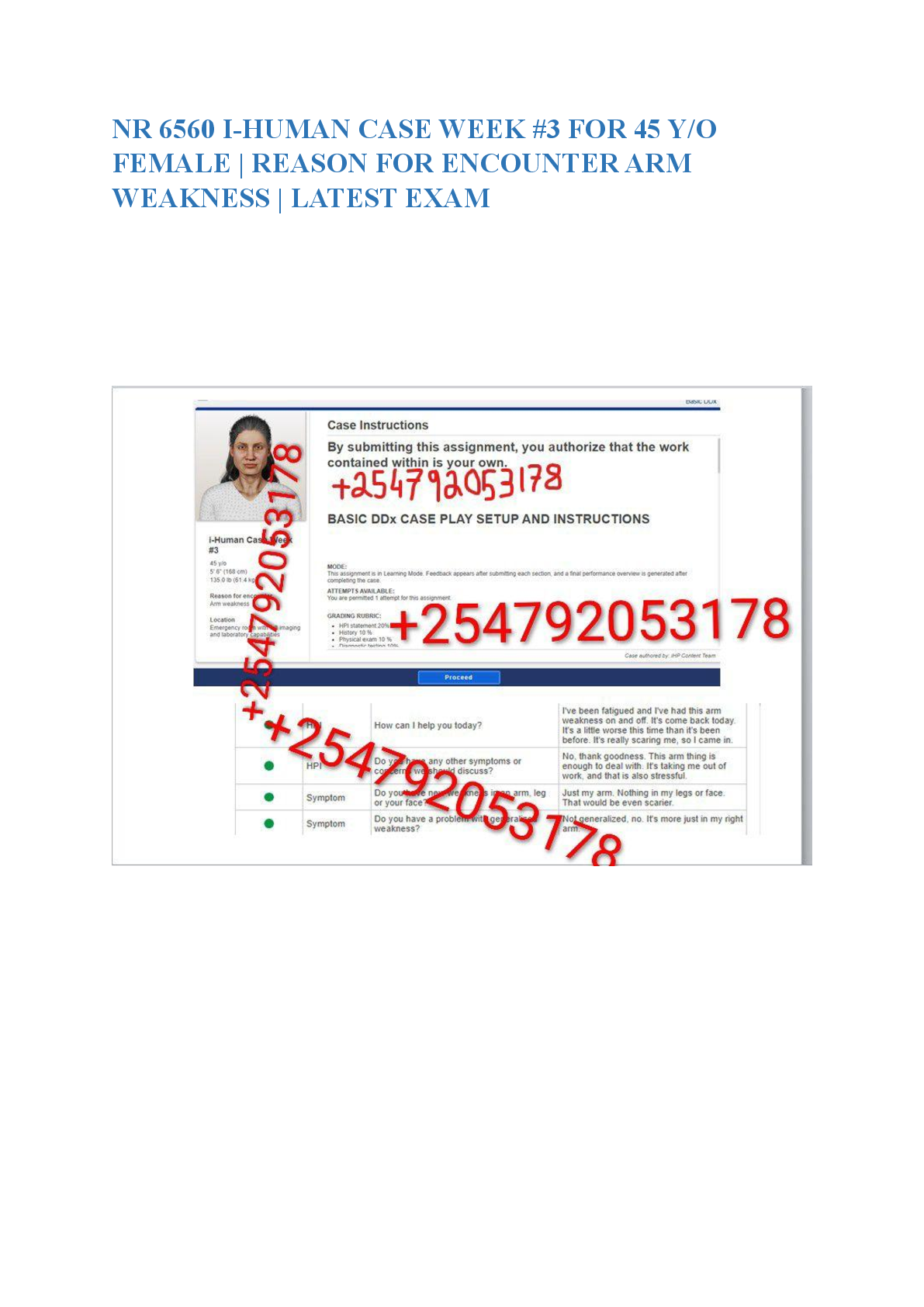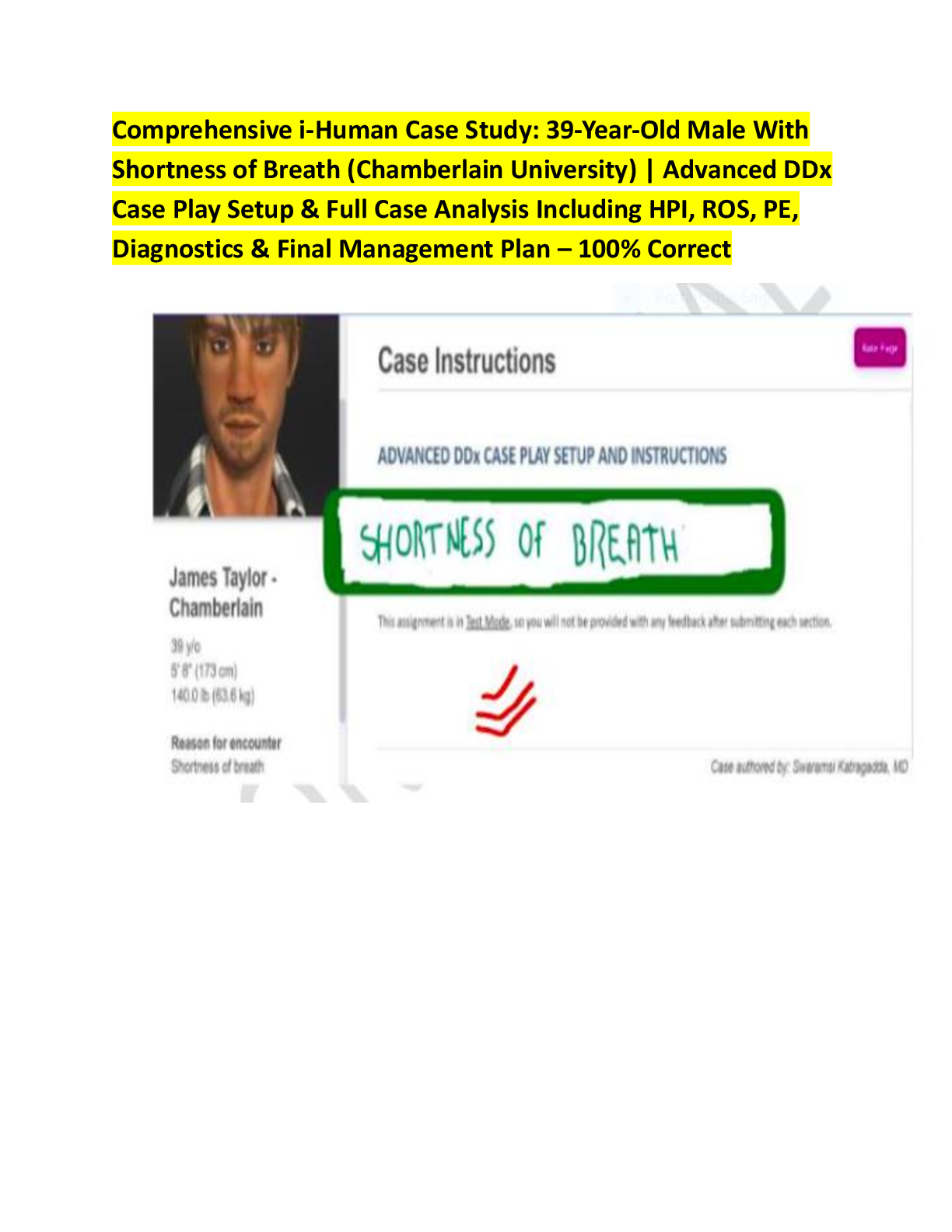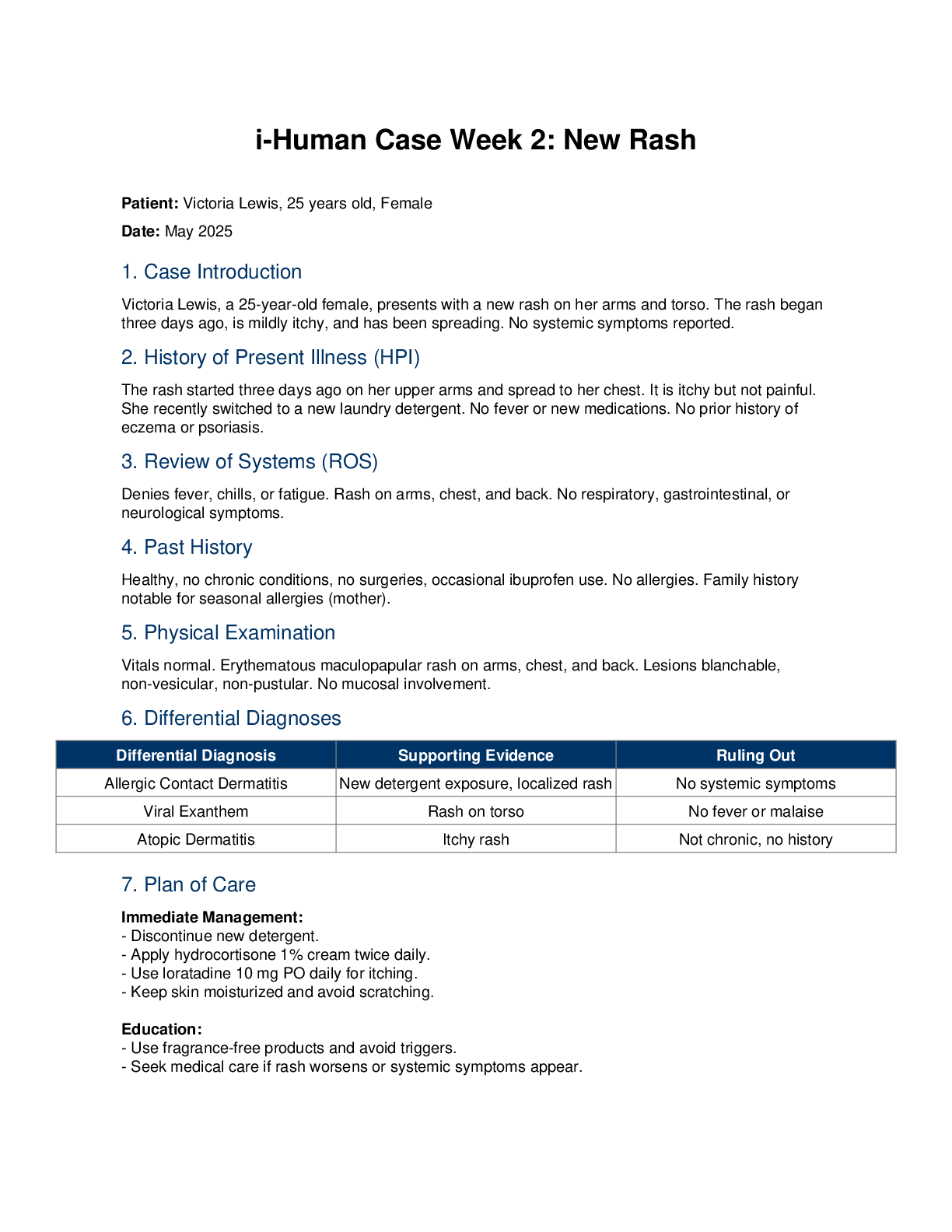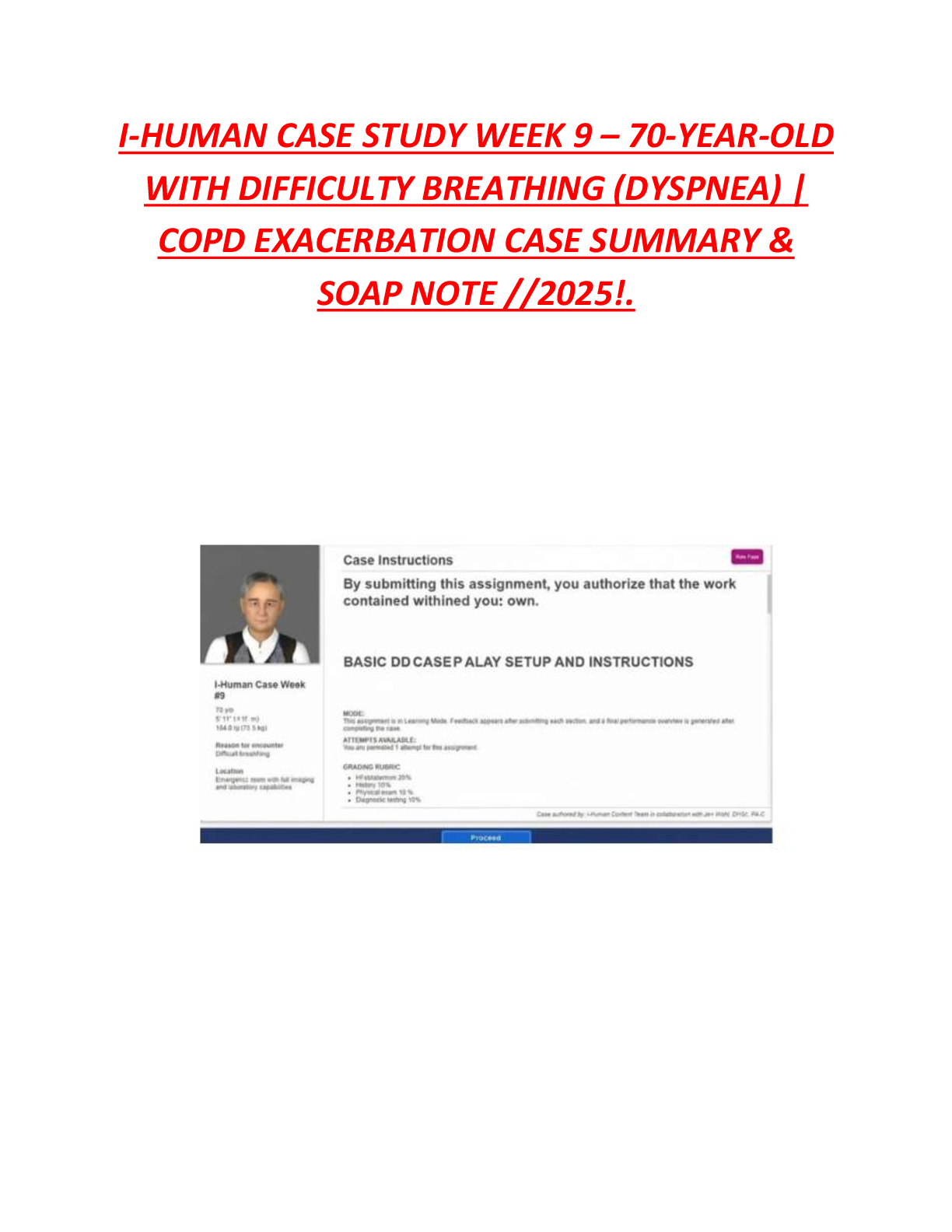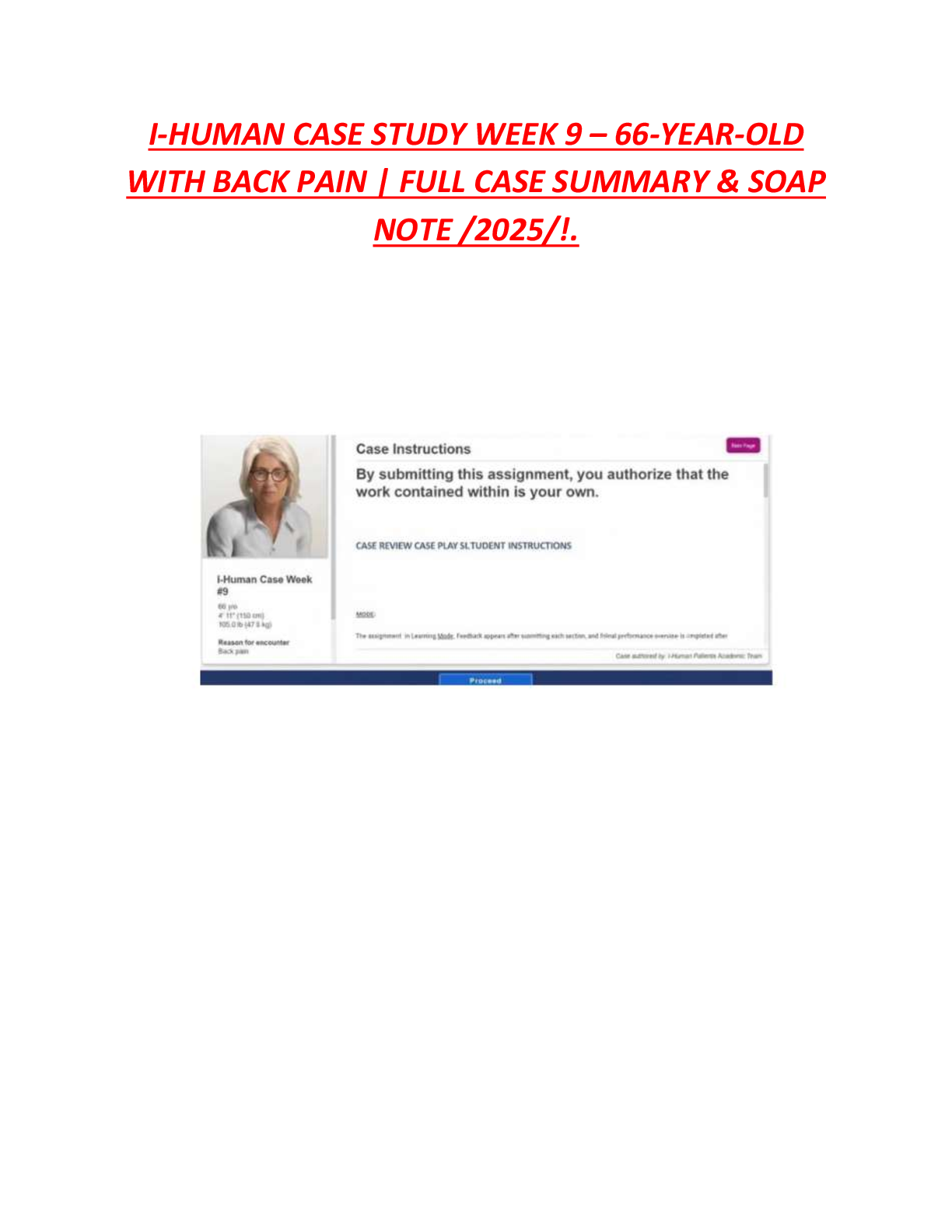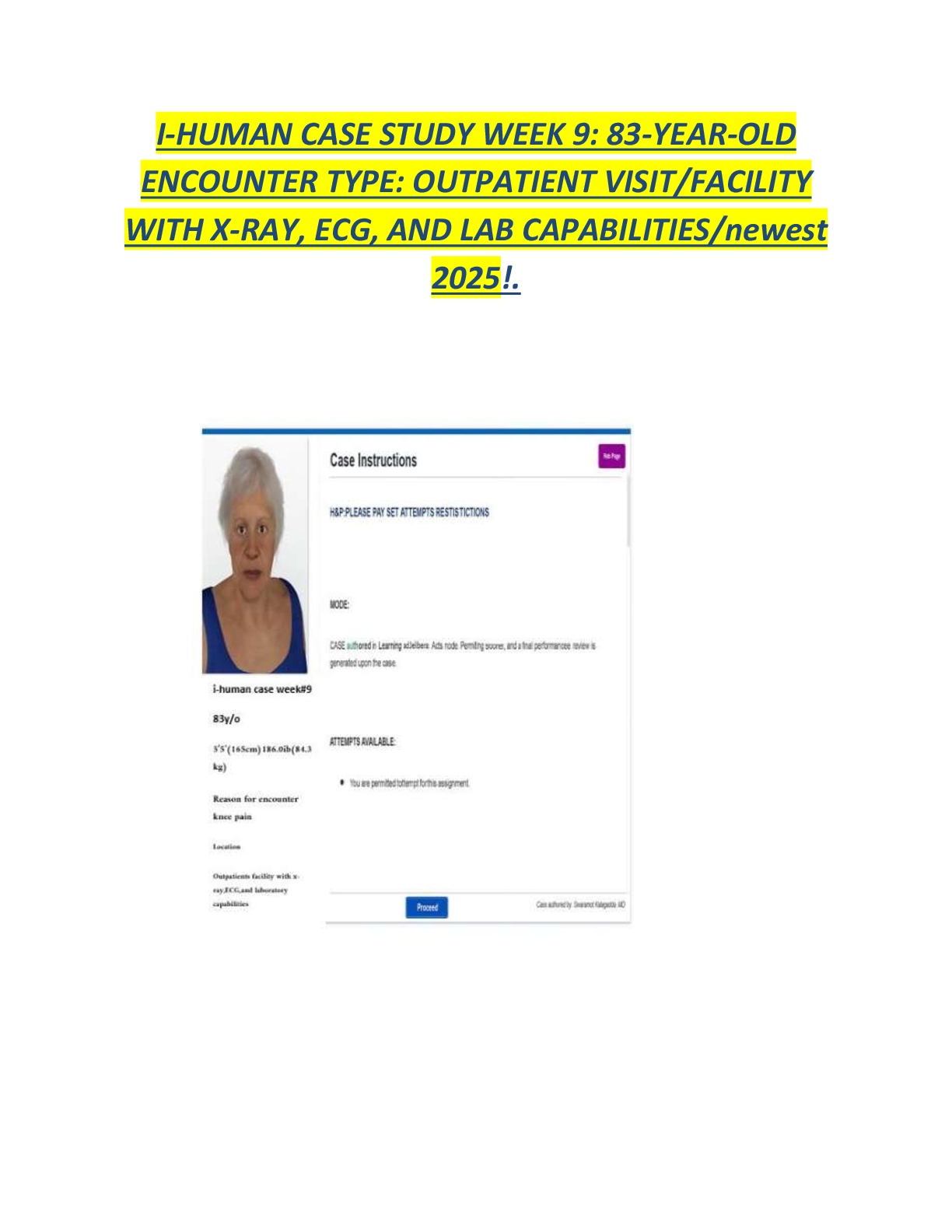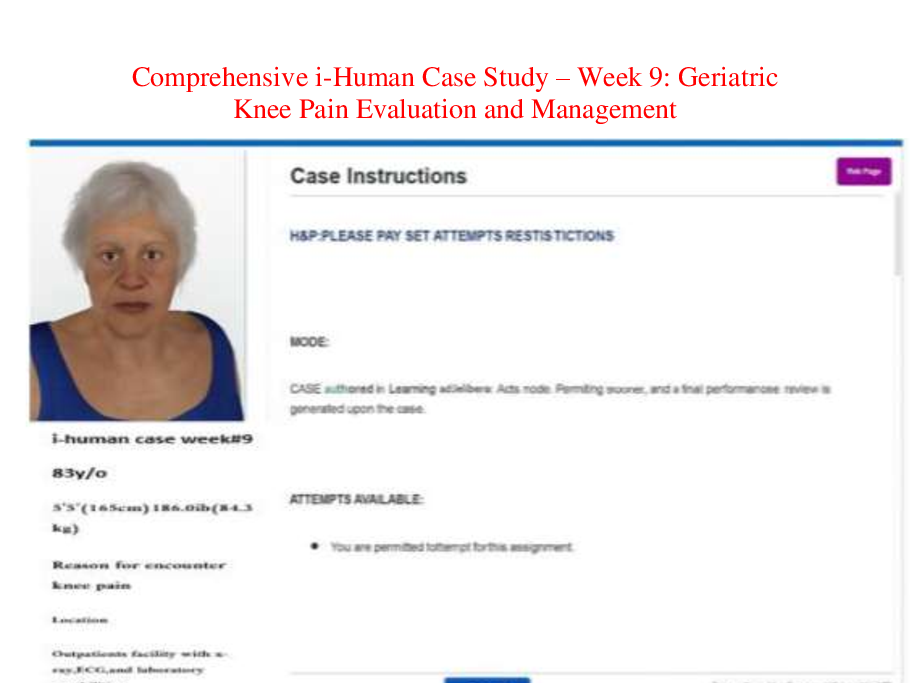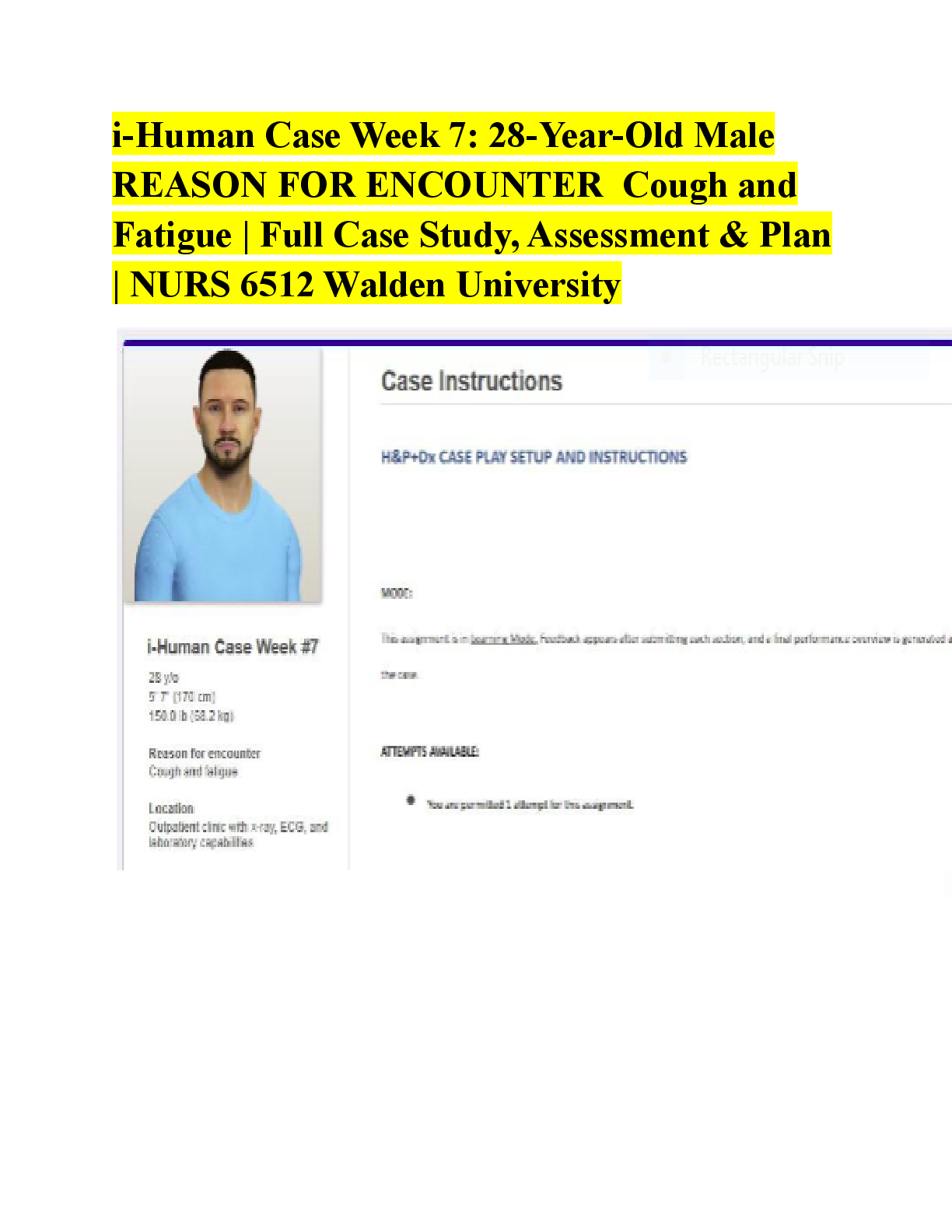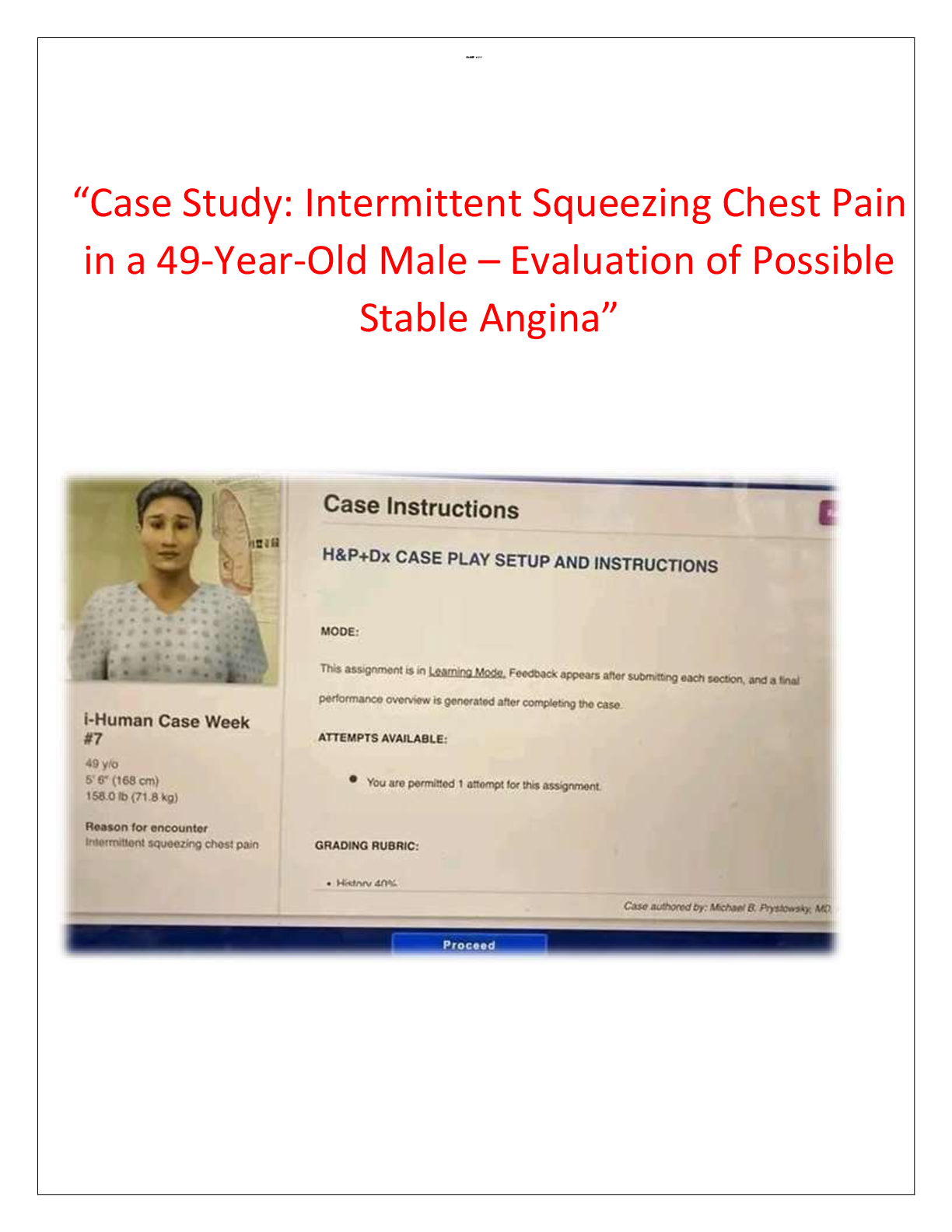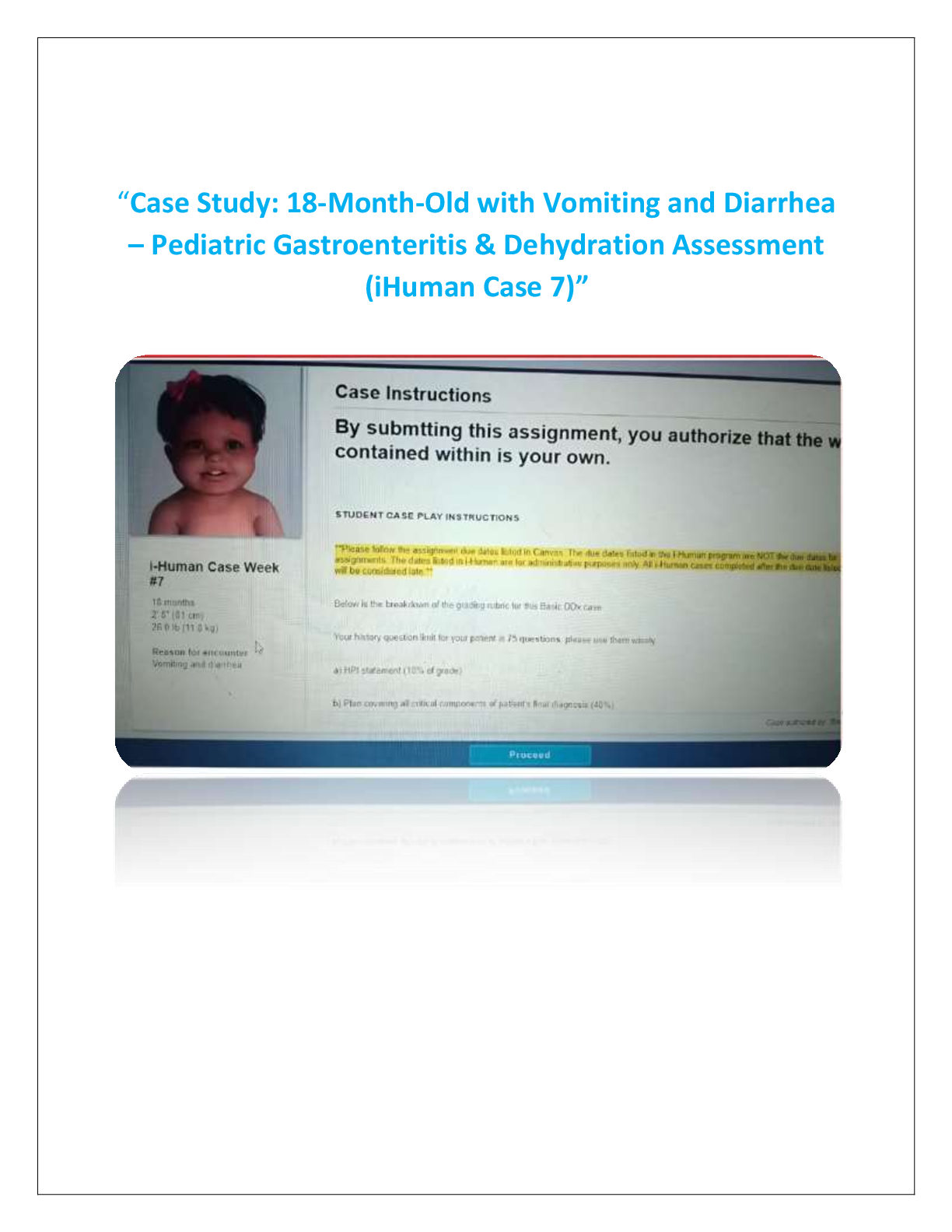Business Law > CASE STUDY > LEG 100 Week 8 Assignment Paula Plaintiff's Really Bad Week, Part 2_Solution_Graded A. Attachments a (All)
LEG 100 Week 8 Assignment Paula Plaintiff's Really Bad Week, Part 2_Solution_Graded A. Attachments area
Document Content and Description Below
LEG 100 – WEEK 8 – PAULA PLAINTIFF’S REALLY BAD WEEK, PART 2 Assignment: What types of legal claims could Patty make against Capstone Corporation and Freddy? Notes: Introduction In this ass ... ignment, you’ll need to decide whether Paula Plaintiff has any legal claims arising from another series of unfortunate events. After reading the scenario, answer the questions that follow, making sure to fully explain the basis of your decision. Paula’s bad luck continues. Five days after the events detailed in your last assignment, Paula returns to work at Capstone Corporation. Unfortunately, she used her company e- mail to send her mom a personal note about her injuries, despite being aware that Capstone’s company policy prohibits use of company e-mail for personal communication. Paula’s supervisor, Mikey Manager, discovers Paula’s violation and Paula is reprimanded. When Paula goes home, she uses her personal computer to post disparaging comments about her boss and Capstone Corporation on social media. The next day, Paula is fired from her job. After several days of bad luck, Paula believes her luck is about to change. She finds a new job in a nearby town. Paula had been using the bus to go to work at Capstone Corporation, but she will need to purchase a car to commute to her new job. Fortunately, her neighbor Freddy Ford has just purchased a new vehicle and is selling his old Mustang. Paula meets with Freddy and agrees to purchase the Mustang for $1000. The parties also agree that Paula will bring Freddy the money the next day when she picks up the car. The next day, Paula calls Freddy and says, “I have the money. I’d like to come pick up my car.” Freddy replies that Paula is too late. He sold the car earlier in the day. Instructions In a 6–10 paragraph paper, answer the following questions: -Does Paula have any legal claims against Capstone Corporation? What about Paula’s actions? Does Paula have a contract with Freddy to purchase the car? Consider the following: -Does Paula have a right to privacy when using Capstone Corporation’s e-mail system? Discuss one’s right to privacy and relate it to the facts in the scenario. -Can Paula be legally fired from her job for making negative comments about her boss and her company on social media? What about free speech? Discuss these issues and relate them to the facts of the scenario. -Do Paula and Freddy have a contract for the sale of the Mustang? Discuss the elements of a contract and relate those elements to the facts of the scenario. Everyone has bad days and can even have a bad few days consecutively in a row. There is an old saying that bad things come in threes. But, sometimes it may feel like the situations we are put in can go from bad to worse. Paula Plaintiff has had one of these types of weeks. It all began when Paula began looking for a new laptop at Cash Mart. She remembers she has an appointment and tried to quickly exit the store as a security guard stops her and accuses her of shoplifting. He then detained her and after some time the manager of the store came to apologize and release her. After being released, she steps out of the store and is hit in the head by a golf ball which knocked her unconscious. Paula’s bad luck seems to continue. Five days after this event she returns to work at Capstone Corporation. Knowing that it is against company policy to use the company email for personal communication Paula emails her mother a personal note to detail her injuries anyways. Mikey Manager, Paula’s supervisor discovers this violation and reprimands Paula. That same night she goes home to use her own computer to then post disparaging comments about her supervisor and the Capstone Corporation on her social media. And is subsequently fired from her job the next day. Believing that her luck is changing she finds a new job and realizes that she will need a car to commute. Her neighbor Freddy Ford is selling his Mustang. Paula meets with Freddy and agrees to purchase his Mustang for $1000. They also agree that Paula will bring Freddy the money the next day when she picks up the car. The next day, Paula calls Freddy and says, “I have the money. I’d like to come pick up my car.” Freddy replies that Paula is too late. He sold the car earlier in the day. Paula does not have any legal claims against Capstone Corporation. In regards to the Fourth Amendment in the Constitution, it prohibits unreasonable searches and seizures by the government. To enforce this stipulation of the constitution, courts will generally ask if a person had a reasonable expectation of privacy which is a test to analyze if privacy should be protected in certain circumstances. There are 2 things needed to determine this reasonable expectation of privacy. One would be that the person had an actual, personal expectation of privacy. For example, nearly all people anticipate having privacy in the bathroom. The second one would be that society recognizes that person’s expectation of privacy as reasonable. However, “courts have generally held that employees do not have a reasonable expectation of privacy in the workplace, especially if using hardware provided by the employer, or if the employee handbook says they may be monitored” (Beatty 1). The fact that the company’s policy prohibits use of company email for personal communication and in order to work there she had to have signed a contract and agreed to the company policies. Therefore, if she was using the company computer and company email to send personal messages with her mother, whether or not they were about her personal injuries, the corporation is within their rights to reprimand her for the violation. She does not have any legal claims against Capstone Corporation in that portion of the situation because she agreed to the company policies that prohibit the use of company email for personal communication upon starting her job there. The Electronic Communications Privacy Act of 1986 (ECPA) is a federal statute prohibiting unauthorized interception of access to, or disclosure of wire an electronic communication. This ECPA applies to employers too. According to the book called Introduction to Business Law “An Employer has the right to monitor workers’ electronic communications if (1) the employee consents; (2) the monitoring occurs in the ordinary course of business; or (3) in the case of email, if the employer provides the computer system” (Beatty 1). This means that the employer does have the right to monitor the electronic communication even if it has literally nothing to do with work activities which can include the employee’s actions or activities on any social media platform. However, employers cannot coerce or use any tricks to gain access to the employee’s accounts on social media. Even if Paula had expectations on keeping her pages private by limiting her social media accounts to “friends” and “friends of friends,” that particular setting does not ensure privacy because she has zero control over her friends’ friends, who in this case very well may have included her boss. Therefore, Paula’s supervisor, Mikey Manager obtained rightful access to her social media accounts because if she is voluntarily sharing these disparaging comments about her boss and Capstone Corporation on her social media accounts, then she has no legitimate expectation of privacy because society would not recognize an expectation of privacy as legitimate. Free speech is protected by the First Amendment to the Constitution even when it applies to free speech online. In the law of defamation in regard to being online is the same with regular defamation in that the communicated statement was false and that it harmed his or her reputation. However, opinions are not considered defamatory, even though they may be harmful to someone’s reputation, insulting, offensive, or disparaging. So, in that aspect Paula is in the clear but, because it was negative comments about her boss and her company, it creates a who different scenario. The National Labor Relations Act (NLRA) protects employees right to create or join unions but, it also safeguards all employees who participate in shared activity relating to work conditions and who are not supervisors. The National Labor Relations Board (NLRB) applies this act, saying that even employees that are not unionized cannot be fired for complaining about their jobs, as long as the complaints are shared with other employees and as long as the complaints are not inappropriately hostile or violent. Unfortunately, in order for the disparaging comments about her boss and Capstone Corporation on social media to be protected by the NLRA it would have had to include more than one employee as well as a conversation of the working conditions. From what the scenario depicts, it sounds as though Paula posted this comment alone and it was about working conditions. Employee commentary is limited by social media policies that numerous companies now use. Companies do have the right to fire employees at will for any reason in the absence of a specific legal exception. The wrongful discharge doctrine states an employer is not allowed to fire a worker for a reason that violates public policy. That public policy rule alters from state to state, basically, an employee may not be fired for: exercising a legal right, supporting basic societal values, or refusing to violate the law. Sadly, for Paula, her negative post on social media do not allow her to be protected by the public policy rule. Companies also do have a right to fire employees for off-duty conduct. Considering Paula was making this post on her personal computer at home and was considered off-duty. It also could have been damaging to both the reputations of her manger as well as the Capstone Corporation. Contracts are agreements that are legally able to be enforced. Everyone makes promises however, only some of these promises can be enforced. There are seven elements that have to be present in order for the contract to be enforceable: offer, acceptance, consideration, legality, capacity, consent, and writing. An offer occurs when a company or a person proposes a deal. To determine if a statement that was made is an offer there are two questions; are the words and actions of the offeror implying an intention to make a bargain and have reasonably definite terms been proposed? In this scenario is was stated that Freddy Ford was selling his old Mustang and that they meet and agree to purchase the Mustang for $1000. It was also stated that in addition, the parties both agreed that Paula will bring Freddy the money the next day when she will pick up the car. There definitely was a deal proposed and the offer and acceptance of the offer both indicated the intention and the terms where clearly proposed. Both parties accepted the offer because it clearly states that they meet and Paula agrees to purchase the Mustang for $1000 and they also agree that she will pick up the vehicle the next day and bring the money to pay Freddy. Consideration means that there has to be an exchange and both sides have to receive some measurable benefit from the agreement. It is clearly stated that both parties agreed and planned on exchanging something of value that proved they both meant to be bound by this agreement. There was an agreement and promise by both parties to complete their side of the exchange the very next day. This was evident in that Paula would give up $1000 in exchange for Freddy’s Mustang. Legality means that the contract must be legal and capacity means that both parties have to be adults of sound mind. It does seem that both Paula and Freddy were adults of sound mind and the subject matter of the contract was legal. It appears that they both knew and understood what they were agreeing to and both were of legal age and of sound mind. Consent refers to certain kinds of trickery or force that can prevent the contract formation. There was obviously no fraud or trickery on Paula or Freddy’s part because the terms were clearly stated and agreed upon. Some types of contracts have to be in writing to be enforced, while frequently verbal agreements tend to amount to contracts. Looking at the elements of a contract it appears that Paula has entered into a verbal contract with Freddy but, it is not enforceable. However, Paula does not have a contract with Freddy to purchase the Mustang. According to the Statute of Frauds, there are certain contracts that are required to be in writing. The contracts that must be in writing to be enforceable are; agreements for any interest in land, agreements that cannot be performed within one year, agreements in which one party promises to pay the debt of another, agreements made by an executor to pay a debt of the estate, an agreement made in consideration of marriage, and also an agreement for the sale of goods of $500 or more. These six types of agreements will never be able to enforceable unless it is in writing and signed. According to the book “the essential UCC rule: A contract for the sale of goods worth $500 or more is not enforceable unless there is some writing, signed by the defendant, indicating that the parties reached an agreement (Beatty, 1). The Uniform Commercial Code or UCC controls most of the contracts made every day. Article 2 in the UCC applies to the sale of goods. Goods are described as any movable physical object except for money and securities for example stock certificates. In conclusion, everyone experiences bad luck from time to time. However, this does not allow Paula the permission to behave in such an unprofessional way. She knew that it was against policy to use the email system for personal use and yet she decided to do it anyways. Just as the Corporation has rules about the personal email usage it is sure to have policies about making negative comments about her boss and the corporation on social media as well. Making these disparaging comments about the boss and the corporation could be considered defamation or libel which is written defamation. Anything posted online regardless of what you believe, is never private. Unfortunately for Paula, the contract she thinks she has with Freddy is void because any good over $500 must be put in writing and signed for it to be enforceable. [Show More]
Last updated: 3 years ago
Preview 1 out of 4 pages
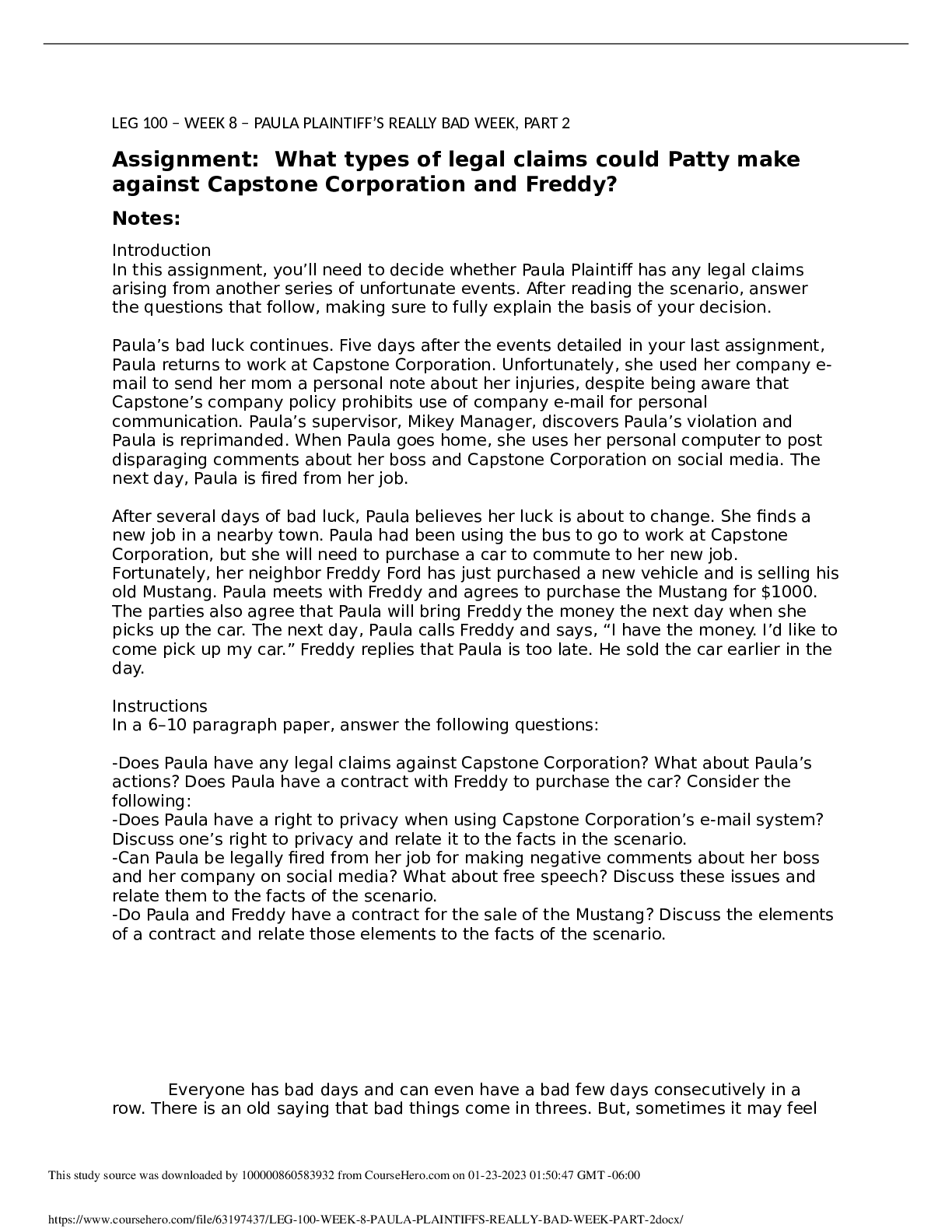
Buy this document to get the full access instantly
Instant Download Access after purchase
Buy NowInstant download
We Accept:

Reviews( 0 )
$7.00
Can't find what you want? Try our AI powered Search
Document information
Connected school, study & course
About the document
Uploaded On
Sep 20, 2021
Number of pages
4
Written in
All
Additional information
This document has been written for:
Uploaded
Sep 20, 2021
Downloads
0
Views
181




